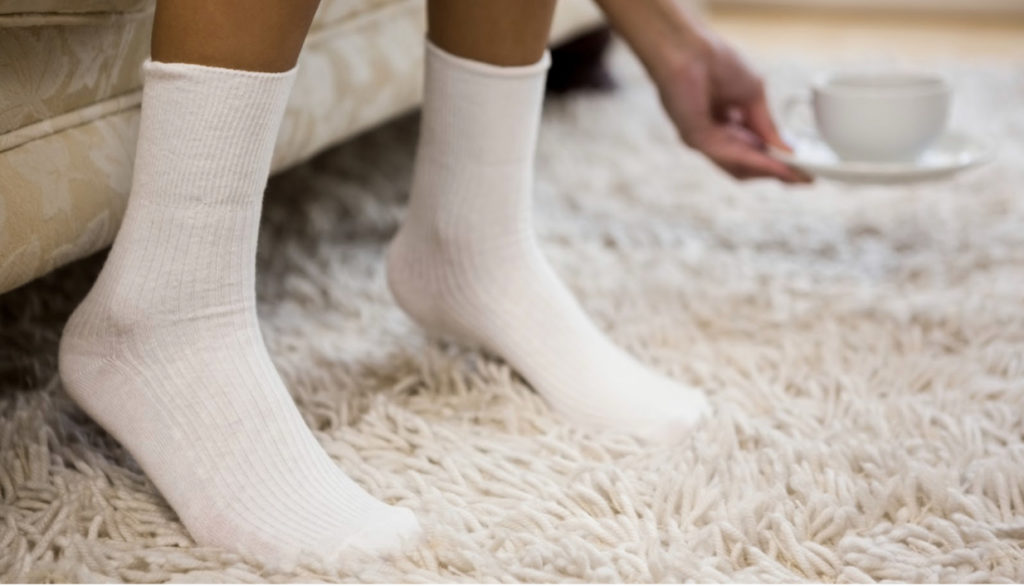What type of carpet is best for your home?
You have several options when it comes to choosing the best type of carpet for your home.
- Acrylic fiber
- Olefin or polypropylene
- Polyester
- Nylon
- Wool
Time for new carpet for your home?
Before you hit the carpet store, it’s a good idea to understand the different types so you can make an informed decision.
When you’re looking for carpet that lasts, price isn’t always king.
Here’s what you need to know about choosing the best type of carpet for your home.
Get educated on carpet type before you shop
There’s absolutely no doubt about it: Recarpeting your home can be a costly endeavor.
Not only can the material be expensive, but the tear-out, installation and the labor costs to move the furniture can be a shocker to anyone who writes the check.
When you’re finally ready to pull the plug and purchase new carpet, you want to find the cheapest deal possible, right?
Not so fast. When deciding on the best type of carpet for your home, there’s a lot to think about.
It depends on whether you want to pay a little more up-front to have carpet that performs better, has a longer life, and won’t look worn or matted down with heavy traffic patterns.
Quality fibers also clean up much easier, with better results, when professionally cleaned and maintained properly.
Choose the best type of carpet for your home
There are a lot of choices when it comes to purchasing carpet for your home, such as color, pattern, texture and fiber type.
Making those decisions is the fun part of creating an awesome design in your home.
But choosing the fiber type can be confusing and overwhelming if you don’t know what you’re looking for.
So, what type of carpet is best for your home?
Here are the YAYs and NAYs (aka Pros and Cons) for each fiber type.
1. Acrylic fiber
Acrylic is a man-made fiber that is made to look like wool for a fraction of the cost of wool.
YAYs for acrylic
- Acrylic carpet is sold at a much lower cost than wool. Often, acrylic is blended with wool, giving it a higher performance than acrylic alone, yet still at a lesser price than an all-wool carpet.
- It resists electricity. No more shocking yourself as you open the door to go outside!
- It comes in brilliant colors and is resistant to fading from the sun.
- It’s hypoallergenic for those who are sensitive or prone to allergies.
- It’s warm and mold-resistant.
NAYs for acrylic
- If not treated quickly, grease and dirt stains can remain forever, embedded into the fiber.
- Acrylic is known for losing fibers, especially in high-traffic patterns.
- The lifespan of acrylic is, sadly, only 6-8 years. And, if your home is occupied by kiddos, kitties and pups, it could be reduced to 4-6 years.
- If not treated with a fire-retardant, it’s easily ignited and flames up quickly.
2. Olefin or polypropylene
Olefin carpet is also known as Herculean or polypropylene. It’s a man-made synthetic fiber that can be made with a low-luster to give the impression of wool. It can also be made with a high shine.
YAYs for olefin/polypropylene
- It is the cheapest fiber available.
- Olefin is stain-resistant and repels dirt and soiling.
- You cannot bleach it.
- It’s super-easy to clean with warm water and detergent.
NAYs for olefin/polypropylene
- It doesn’t like heavy traffic and wears poorly.
- Fibers crush easily and don’t “bounce back” – even after a professional cleaning.
- Although resistant to “dirt” stains, olefin is NOT resistant to grease stains, such as spaghetti sauce or salad dressing.
- It’s inexpensive. You get what you pay for: a carpet that will last 6-8 years in a hustling-and-bustling home may not be the best type of carpet for you.
3. Polyester
Polyester carpet is made from 100% recycled material that’s made in a cut-pile, looped or cut/loop pile (as seen in the image above).
YAYs for polyester
- It’s green, made from 100% recycled plastics.
- It’s soft, warm and comfy to walk on.
- Polyester is stain-resistant. If you spill a drink (oops!), you can wipe it up promptly and never know it happened.
- It comes in amazing, bright colors.
- It’s not as inexpensive as olefin or acrylic, however, it is less expensive than nylon.
NAYs for polyester
- Although polyester resists stains from most spills, anything that contains oil will leave a spot.
- Polyester has a lack of durability, especially in highly-traveled areas.
- The fiber mats and crushes easily, giving the walkways a worn look. Typically, the fiber doesn’t pop back after cleaning.
- Don’t expect polyester to last longer than 5-7 years. It could be even less in an area such as a well-loved family room.
4. Nylon
Nylon carpet was the first synthetic fiber made. It’s also the most popular.
Fun fact: In 1935, women’s stockings, fishing nets and toothbrushes were all made of nylon fiber. It was then made into a carpet fiber by Wallace Hume Carothers.
YAYs for nylon
- Nylon is stain-resistant, even to grease stains, unlike the other synthetic fibers.
- It’s super easy to maintain: A little warm water and dish detergent can do the trick for most spots.
- The clean-ability of nylon is much better than the other “synthetics.”
- Nylon manufacturers typically offer longer warranties.
- Traffic patterns “bounce back” with the heat of a truck-mounted thermal extraction cleaning.
- When professionally maintained, nylon carpet can last 8-10 years.
NAYs for nylon
- It can bleach when used with an over the counter spot cleaner that contains a bleaching agent.
- It’s the most expensive synthetic fiber (still less than wool carpet).
- It can fade in the sun.
5. Wool
We don’t think we have to explain to you where wool comes from, however, if you don’t know, we recommend a Google search.
Wool is the only natural fiber, other than sisal or jute.
YAYs for wool
- Wool is hypo-allergenic and contains no chemicals. When we say no chemicals, that’s the majority of the time. If you’re worried about chemicals, make sure to check out the backing construction because it may contain latex. Some wool carpet backs are made with jute.
- It’s environmentally-friendly and biodegradable.
- Wool absorbs moisture, which provides you with your very own dehumidifier as it collects as much as 30% of its own weight in moisture. Another bonus is that it absorbs harmful chemicals in the air. (Extra-yay for wool!)
- Sheep’s’ wool has a natural protectant to repel water, which keeps them warm in the rain. This protectant also repels dirt, soil and stains, so the clean-ability is the best of all the fiber types.
- Wool has a warm, luxurious look and feel to it. Have you ever petted a sheep? They’re oh-so-soft and fluffy.
- Wool carpet will last for years and years. The most common reason to replace it is that it may become outdated well before it wears out.
NAYs for wool
- Wool carpet can shed, especially when new. You may or may not notice until you go to empty your vacuum bag.
- It can be damaged by alkaline cleaners that are sold at your local hardware store. It’s best to contact the carpet manufacturer or your trusted professional carpet cleaning company for safe cleaning products. (Hint: HK is your go-to cleaning company!)
- It can bleach and fade from the sun.
- It’s the most expensive carpet. Remember, you get what you pay for!
Best type of carpet: The verdict
You can’t go wrong with nylon or wool. If you want a durable and cleanable carpet for less, pick nylon. On the other hand, if you want something to last for years to come with all the perks of cleaning and wearability, wool is your winner.
So, what type of carpet is best for your home? An inexpensive fiber that will need to be replaced sooner? Or will you spend a few extra bucks to buy a longer-lasting fiber?
Whichever you choose, there’s one thing you need to know: You need to have your carpets professionally maintained to extend the life, create a healthy environment and bring sparkle and shine to your home. (Pssst! Call Hammond Knoll!)

